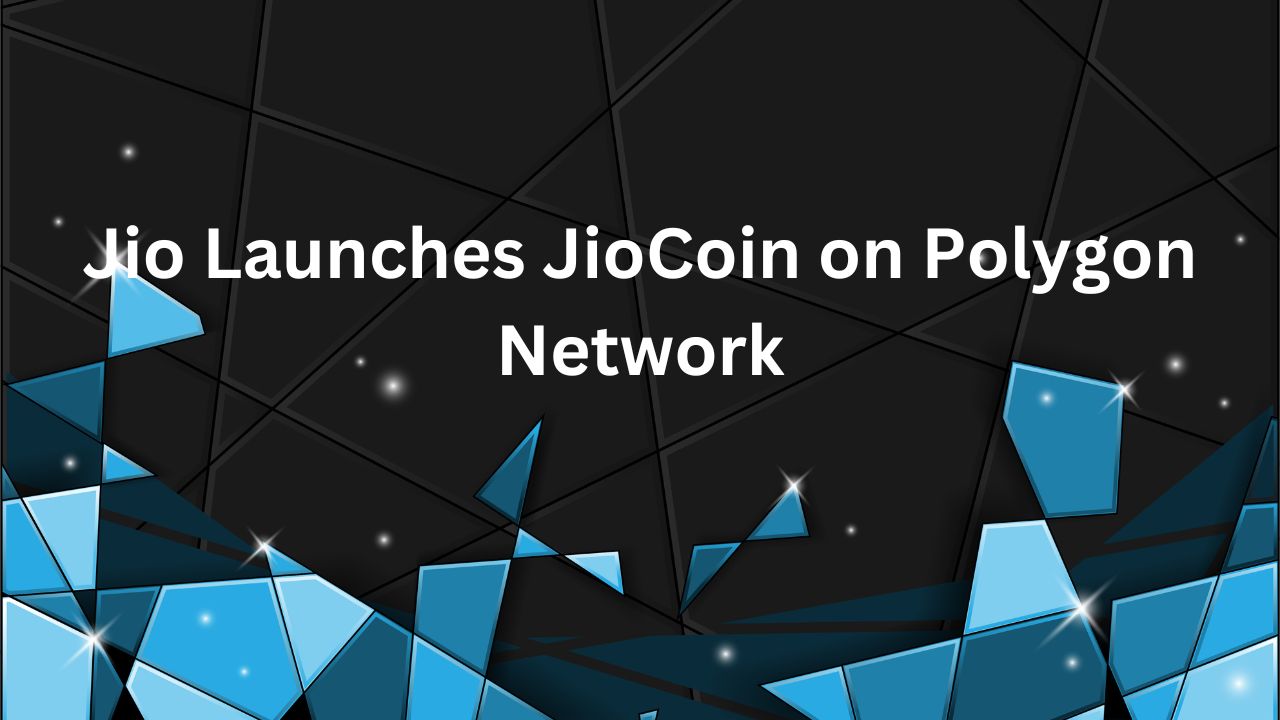Jio Launches JioCoin on Polygon Network: A Step Towards Blockchain Integration
Aneh Thakur
. 4 min read
India’s largest telecom provider, Jio Platforms, has entered the blockchain space with the launch of JioCoin, a digital token built on the Polygon network. This groundbreaking move is spearheaded by Mukesh Ambani, the chairman of Reliance Industries, as part of Jio’s vision to integrate blockchain technology into its vast ecosystem. The introduction of JioCoin marks a significant development in the Indian digital landscape, with implications for both users and the broader tech industry.

JioCoin: A New Era in Digital Rewards
JioCoin operates as a reward-based token, seamlessly integrated into Jio’s proprietary web browser, JioSphere. The browser enables users to earn JioCoins simply by browsing the internet, providing an incentive for greater user engagement. These tokens are stored in a Web3 wallet built on the Polygon network, ensuring a decentralized and secure platform for users to manage their rewards.
Currently, JioCoins are non-transferable and non-redeemable, limiting their utility to being stored in the wallet. However, there is widespread speculation that Jio intends to expand the token’s functionality in the near future. Potential use cases could include redeeming JioCoins for services like mobile recharges, data packs, or even purchases at Reliance’s extensive retail outlets. This potential ecosystem integration underscores Jio’s ambition to leverage blockchain technology for practical, everyday applications.
Collaboration with Polygon: Why It Matters
The decision to launch JioCoin on the Polygon network is strategic. Polygon, an Ethereum scaling solution, offers low transaction fees, high scalability, and a robust infrastructure—making it an ideal platform for a high-volume user base like Jio’s. By partnering with Polygon, Jio ensures that JioCoin operates efficiently while providing users with a seamless experience.
Polygon’s reputation as a leading blockchain platform also lends credibility to JioCoin. This collaboration signifies a shift in India’s tech ecosystem, as established corporations like Jio adopt blockchain solutions to enhance their services. Such partnerships are likely to inspire other companies to explore blockchain technology, accelerating its adoption across various sectors.
Challenges and Criticism
While the launch of JioCoin has generated excitement, it has also raised questions about transparency and implementation. Critics have pointed out the lack of a publicly available block explorer or verified smart contracts for JioCoin on the Polygon network. Additionally, details about the token’s maximum supply and distribution remain unclear, leading to concerns about its long-term sustainability and governance.
Some have drawn comparisons between JioCoin and the Basic Attention Token (BAT) used by the Brave browser. Like BAT, JioCoin incentivizes users for their online activity. However, Jio’s approach is uniquely tailored to its ecosystem, which includes telecom services, retail outlets, and digital platforms. This integration could make JioCoin a game-changer in India’s digital economy, provided the company addresses the concerns surrounding its launch.
Implications for India’s Digital Economy
JioCoin’s launch comes at a time when India’s cryptocurrency regulations are under scrutiny. The government imposes a 30% tax on crypto gains and a 1% tax deducted at the source, making the environment challenging for blockchain and cryptocurrency adoption. Despite these hurdles, Jio’s foray into the blockchain space signals confidence in the technology’s potential to transform industries.
If successful, JioCoin could pave the way for mainstream adoption of digital tokens in India. Its integration with everyday services could demonstrate the practical benefits of blockchain technology, shifting public perception and encouraging other corporations to explore similar innovations. Additionally, Jio’s initiative could prompt policymakers to reconsider their stance on blockchain and cryptocurrency, fostering a more supportive regulatory environment.
The Future of JioCoin
The launch of JioCoin is just the beginning. As Jio continues to refine its blockchain strategy, we can expect the token’s utility to expand significantly. Integrating JioCoin into Reliance’s broader ecosystem could unlock new opportunities for user engagement, loyalty programs, and financial inclusion. For instance, rural users who rely on Jio’s affordable telecom services could benefit from earning and using JioCoins for essential services, bridging the digital divide.
Moreover, Jio’s entry into the blockchain space could spark competition among Indian corporations, leading to increased innovation in the sector. This competition could drive the development of more user-friendly and scalable blockchain solutions, positioning India as a global leader in blockchain technology.
Conclusion
Jio’s launch of JioCoin on the Polygon network is a landmark moment for India’s digital ecosystem. By integrating blockchain technology into its services, Jio is not only enhancing user experiences but also setting a precedent for other corporations to follow. While challenges remain, the potential for JioCoin to revolutionize digital rewards and drive blockchain adoption in India is immense.
As JioCoin evolves, it could become a cornerstone of Jio’s ecosystem, offering users tangible benefits while showcasing the transformative power of blockchain technology. This initiative highlights the innovative spirit of Jio Platforms and its commitment to shaping the future of India’s digital economy.
More Stories from
Boost Developer Speed with Google Cloud CLI & Claude AI
Accelerate software development with Google Cloud CLI and Claude AI. Automate tasks, deploy faster, and improve workflows using intelligent tools.
India’s Rise in the AI Era: Shaping the Future as a Global Leader
India is becoming a global AI leader through initiatives like IndiaAI, indigenous LLMs like Sarvam AI and BharatGPT, and rapid startup growth. Learn how AI is shaping India’s digital and inclusive future.
AI and Beginner Developers: A Double-Edged Sword in Programming
AI tools are transforming how beginner developers learn to code. Discover the benefits, risks of over-reliance, and best practices to use AI effectively in your programming journey.
Mastering Google AI Mode: A Guide for SEO Professionals in the Age of Answer Engines
Learn how Google AI Mode is changing search. Discover how to adapt your SEO strategy with Answer Engine Optimization (AEO) for AI-powered results.
🚀 OpenAI’s $3 Billion Windsurf Acquisition: What It Really Means
OpenAI's $3 billion Windsurf deal shows that developer tools—not chatbots—are the real future of AI. Here’s what this means for coders, jobs, and the evolving dev landscape.








